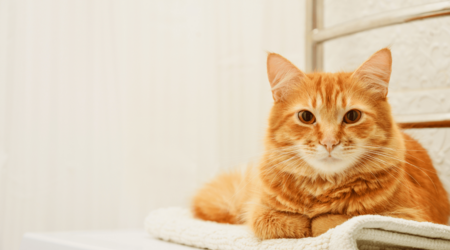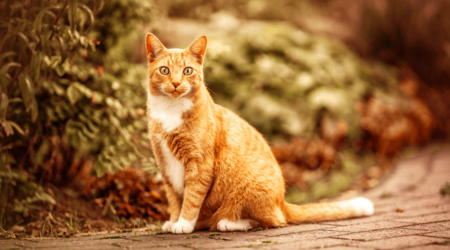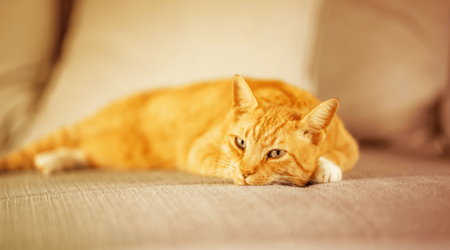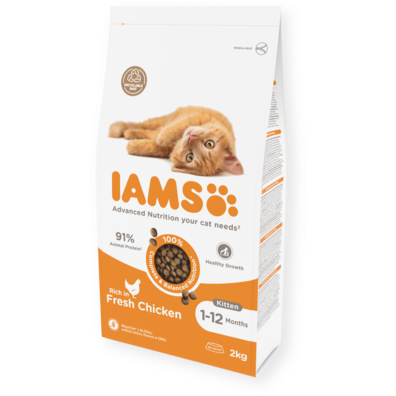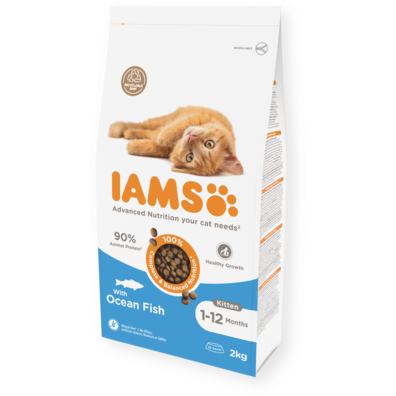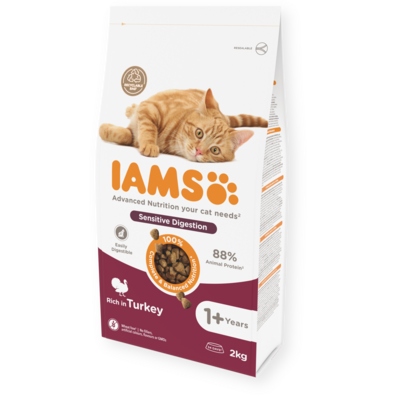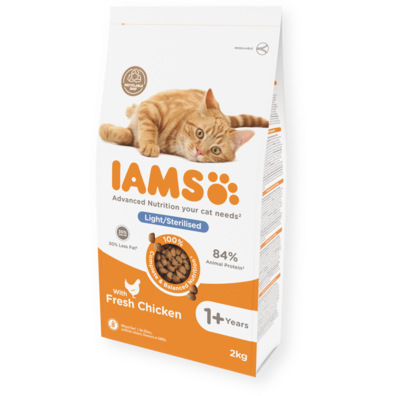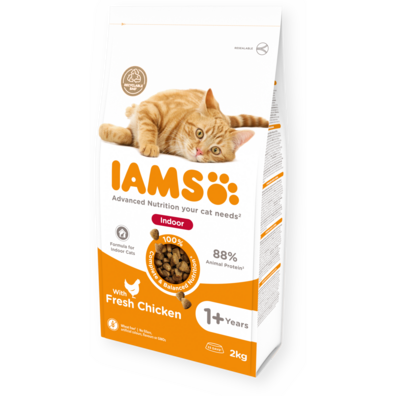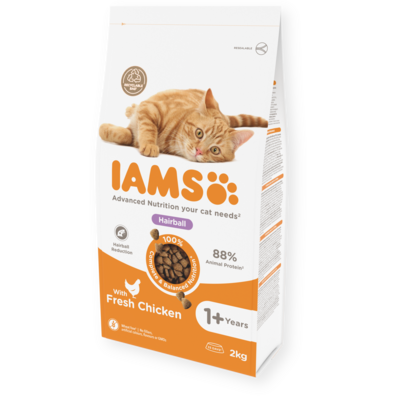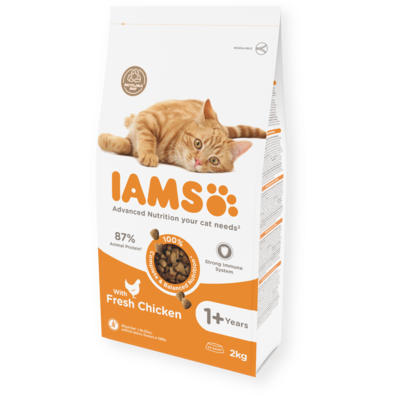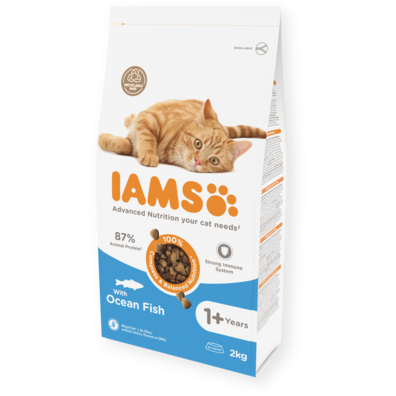Why is my cat being sick?
Understanding causes and how nutrition can help.
‘Why is my cat being sick?’ As a cat owner, you want nothing but the best for your feline friend. So when your cat seems unwell and starts vomiting, it can be worrying. While it’s natural to be concerned, vomiting in cats isn’t always a sign of something serious.
Find out: What can be possible causes, which signs you should take seriously. And how to prevent cat’s vomiting.
Of course, our guide can only provide information for self-assessment. If you have any doubts or if the symptoms persist, do not hesitate to consult your vet.
- Occasional vomiting in cats is normal, but frequent or persistent sickness can indicate digestive issues, hairballs or underlying health conditions.
- Common causes include hairballs, food sensitivities, eating too fast or ingesting foreign objects, all of which can be influenced by diet and feeding habits.
- Nutrition can help prevent vomiting. Easily digestible, high-quality cat food and hairball-control formulas support healthy digestion.
- Warning signs to take seriously include lethargy, blood in vomit, diarrhoea, dehydration or loss of appetite.
- If symptoms persist, consult a vet, as vomiting can sometimes signal more serious conditions requiring professional care.
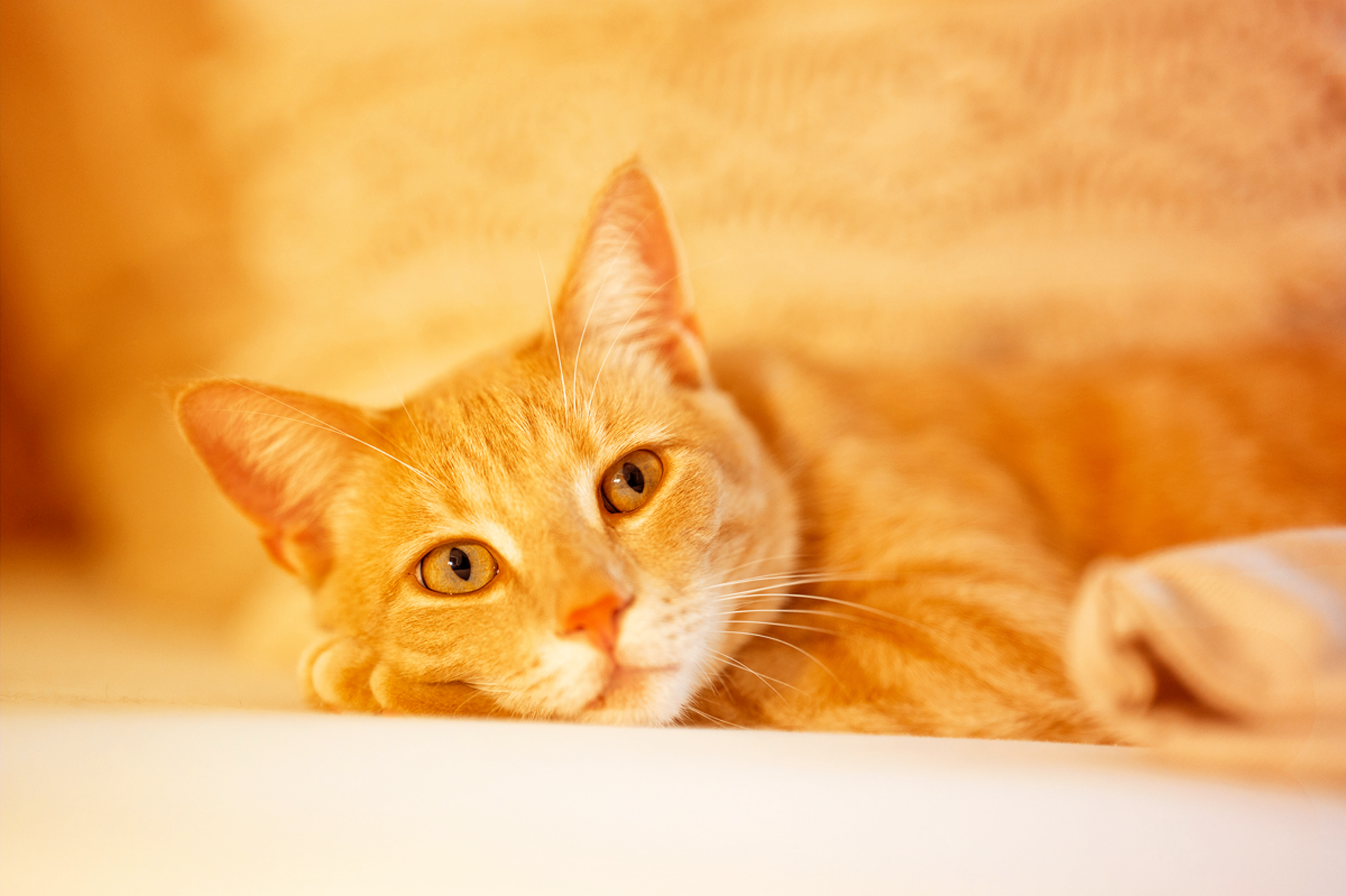
Reasons why cats vomit
One of the most common questions that cat owners ask vets is: Why is my cat being sick? Why is it vomiting? The reasons can actually be very different. While some causes are harmless, others may require more attention.
Understand the possible triggers to support your pet's health and avoid illnesses caused by the wrong food, for example.
1. Hairballs: A common culprit
Many cats experience hairballs due to grooming. Ingested hair can accumulate and cause them to vomit. This is especially common in long-haired cats. Regular grooming and a diet that includes fiber to aid digestion can help minimize hairball-related issues.
Our IAMS for Hairball Control is designed to help reduce the formation of hairballs by supporting your cat’s natural digestion.
2. Dietary sensitivities
Cats can have sensitive stomachs, and vomiting may be a reaction to certain ingredients in their food. Unnecessary additives, low-quality fillers, or sudden changes in diet can all lead to gastrointestinal upset.
For this reason, we have created our special IAMS Advanced Nutrition Cat dry food for Sensitive Digestion, which is rich in Turkey. The carefully balanced and easily digestible recipe ensures that even cats with sensitive tummies can enjoy a delicious, healthy, and complete meal.
Find out more about your cat’s vomiting in our article: Why does my cat vomit after eating?
3. Eating too quickly
Sometimes, cats eat too fast and regurgitate their food shortly afterward. If your cat tends to gobble down meals, consider using slow-feeding bowls or feeding smaller portions more frequently.
4. Ingesting foreign objects
Cats are curious creatures and may sometimes eat something they shouldn’t, such as human food, plants, or even small objects. This can upset their digestive system or, in severe cases, cause blockages.
If you suspect your cat has ingested something harmful, contact your vet immediately.
5. Underlying health conditions
If your cat keeps being sick over an extended period, this may indicate a more serious underlying issue, such as kidney disease, pancreatitis, or hyperthyroidism. In such cases, professional veterinary care is essential. A customised diet can support your cat's nutritional needs.
Sick cat symptoms: When to consult a vet
While occasional vomiting may not require immediate action, certain symptoms suggest a more urgent problem. These include:
- Lethargy and a lack of energy
- Blood in the vomit or black, tarry vomit
- Diarrhea or dehydration
- Loss of appetite or refusal to eat for more than 24 hours
- Excessive thirst or frequent urination
If your cat exhibits any of these symptoms alongside vomiting, it’s important to consult your veterinarian as soon as possible.
Conclusion: How can I prevent my cat from being sick?
To support your cat’s overall health and reduce the risk of vomiting, consider these proactive steps:
- Feed high-quality cat food
- Ensure Proper Hydration
- Groom regularly and avoid stress for your cat (e.g. noise, frequent moving)
At IAMS, we specialise in advanced nutrition that takes into account the natural needs of your cat, tailored to its individual age and lifestyle.
In our Cat Guide you will also find helpful tips to support the health of your furry friend in the best possible way. For example, read our article on how to feed your older cat properly: Keeping your senior cat healthy.
